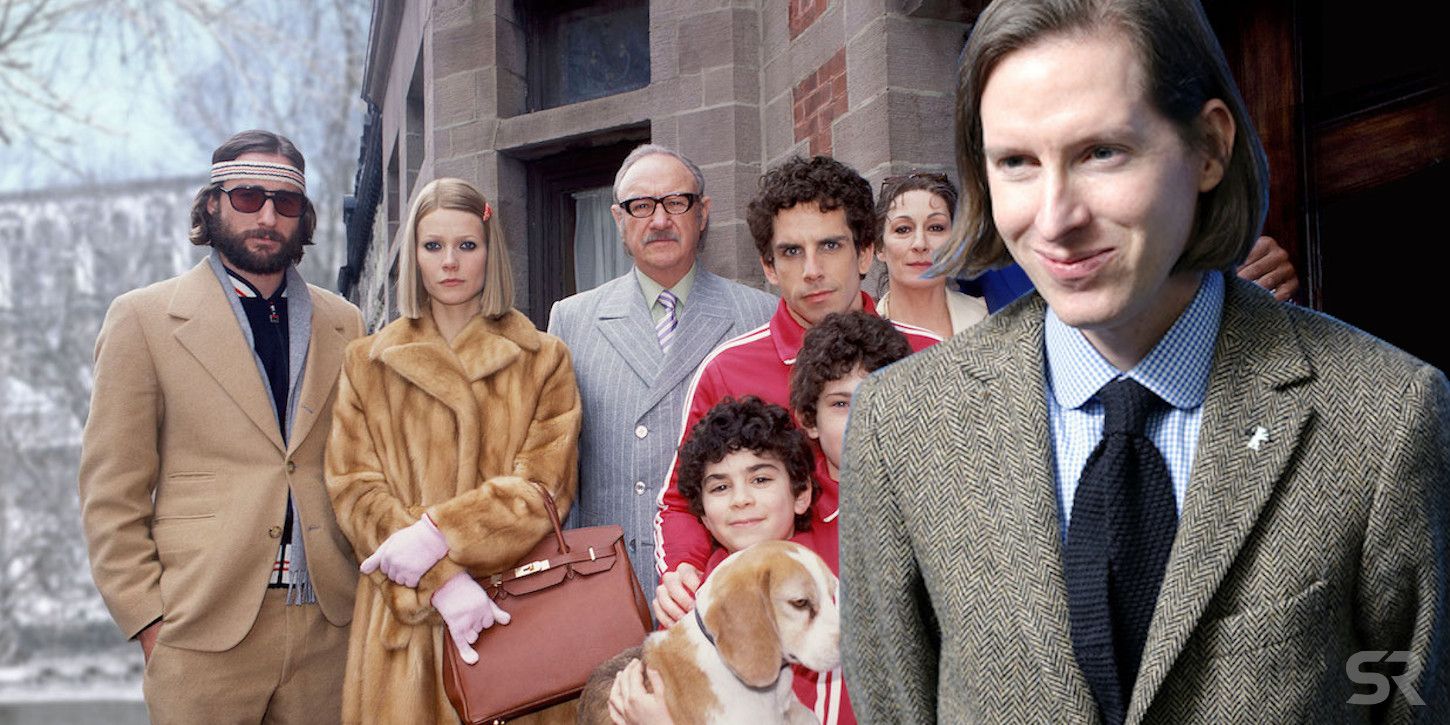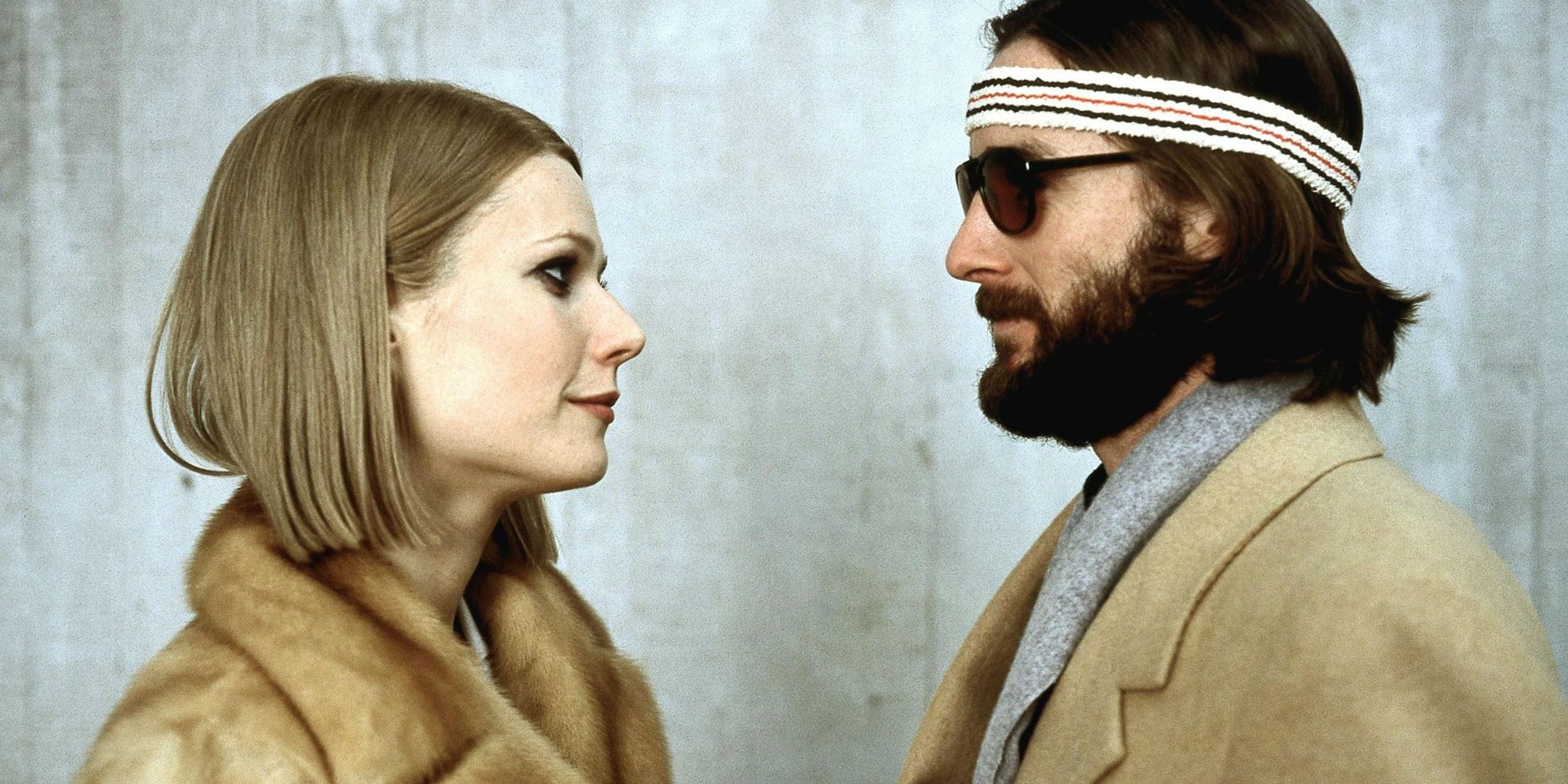Wes Anderson's part-quirky, part-somber 2001 production The Royal Tenenbaums is still the director's best movie. Anderson's third feature film – following his premiere short film and follow up feature Bottle Rocket, and his quintessential teenage dramedy Rushmore – The Royal Tenenbaums was birthed from an Oscar-nominated script (his first) co-written by frequent onscreen collaborator Owen Wilson. It also featured the first of what would become Anderson's characteristically expansive and impressive ensemble casts, including the likes of Gene Hackman, Angelica Huston, Ben Stiller, Gwyneth Paltrow, Danny Glover, as well as Luke and Owen Wilson.
The plot follows the titular Tenenbaum family as their hectic and distinctly separate lives come crashing together. The reason for this unexpected reunion is estranged patriarch Royal (Hackman), who (falsely) tells his separated wife (Huston) that he is dying of cancer. With the little bit of time he has left, Royal says that he wants to make amends with his entire family, including his soon-to-be-remarried wife and his three children: the athletically paranoid entrepreneur Chas (Stiller), the former child playwright Margot (Paltrow), and the disgraced tennis star Richie (Luke Wilson).
The Royal Tenenbaums made $71.4 million at the international box office, over three times its modest budget, and nearly two decades later it's currently sitting at a comfortable 80% certified fresh rating on Rotten Tomatoes, with an 89% audience score. Of course, Wes Anderson films are so distinct and individual (if sometimes seen as repetitive) that they run the very real chance of polarizing viewers' perceptions of the film. So while an 80% is comparatively dismissive – the seventh highest rated production in his filmography – the creative majesty and artist drive of The Royal Tenenbaums makes it the best of Anderson's collection of instant classics. Here's why.
Why Wes Anderson Movies Are Special
In the nearly three decades since he first hit the limelight as a filmmaker, Wes Anderson has brandished himself as a distinct and lone pioneer in creative and eccentric storytelling. Whether or not the viewer is a passionate Anderson fanatic, or just a casual film-watching body, chances are more than likely that he or she recognizes the fact they've stepped in a Wes Anderson world. If not, it's probably their first time.
Anderson's films possess their own modest grandeur. It is not the kind of booming presence that can be felt in a Quentin Tarantino film, or the contemplative, methodic pace seen in a Martin Scorsese or Terrence Mallick production. In fact, Anderson relies heavily on a simple, yet visual formula: heavy on the colors, heavy on the symmetry, and heavy on the balance capable therein.
But beyond the aesthetics of his creations, Wes Anderson has become a champion of quirky and instantly lovable characters. They speak a little snooty – with a big dictionary in between their ears and a special talent for developing impressive and intricate sentences – they're always very distinctly dressed, and under their slick surface, they're sad in some way or another.
The Royal Tenenbaums Is Still Anderson's Best Movie
In speaking to Wes Anderson's style, The Royal Tenenbaums has stood atop the rest in terms of its strange and pleasing viewing experience. While its iconic aesthetics have become a staple of pop culture, no one in the filmgoing public had experienced or was even close to being prepared for this film in 2001. Despite this being his third, and without a doubt his biggest production, Anderson jolted out of the gate with an overwhelmingly strong command over and vision of his craft.
And looking back nearly two decades later, his dry, wry wit, since preserved for other-worldly settings – such as a canine-packed trash island, a foxhole, or the island of a fading ocean documentarian – has a powerful effect when placed in the real world. Set in an almost unrecognizable New York City, the film's comedy is drenched by tragedies: while it turns out to be a conniving ploy, the Tennenbaums are faced with the possibility of losing their father; Margot's marriage to the prominent and devoted psychologist and writer Raleigh St. Clair (Murray) is in shambles; Chas lost his wife and his boys lost their mother in a tragic plane crash; and at one point late in the film, Richie, distraught by the fact that Margot has seemed to have fixings with everybody other than him, slits his writs in an attempt to kill himself.
All of these situations, on top of several drug-induced manias and mental breakdowns, are downright horrific; but etched in that reality is Anderson's trademark dry humor. The way his characters are positioned in the frame – consider Raleigh and Dudley running down the hallway of a hospital with Richie's blood all over them – give the situations an odd, aerial feeling; and the conflicting internal battle between how the viewer should feel proves that Wes Anderson's style is one inherently distinct.
In addition to this constantly quirky vibe, The Royal Tenenbaums benefits from an excellent ensemble performance by everyone involved – with a special shoutout to Gene Hackman, who delivers what many consider to be his swan song performance in this film – and also a remarkably pleasing combination of musical and visual art. For fans wondering what exactly that may mean, they needn't look any further than the scene featuring Gwyneth Paltrow, Luke Wilson, and Nico's "These Days."
How It's Different From Wes Anderson's Other Films
Coming so early in his career, it's easy to say that The Royal Tenenbaums is the film that the rest of Anderson's work is always compared to. Yet the movie itself deviates in several ways from the other landmark productions in Wes Anderson's filmography.
For instance, while all of Anderson's films are treasured by the intricate and tiniest quirky details in their characters' lives, those of The Royal Tenenbaums are particularly peculiar in that they are gravely serious. In its nearly two-hour runtime, the movie delves deep into topics such as familial barriers, suicide, drug addiction and mental health. The juggling of this vast assortment of topics, while also injecting the character's with their own, fully-fleshed narratives, signals the reign of a visionary, mature and encapsulating filmmaker. While The Royal Tenenbaums may not be for everybody (though it should be), the film proved that young auteur Wes Anderson was here to stay.




